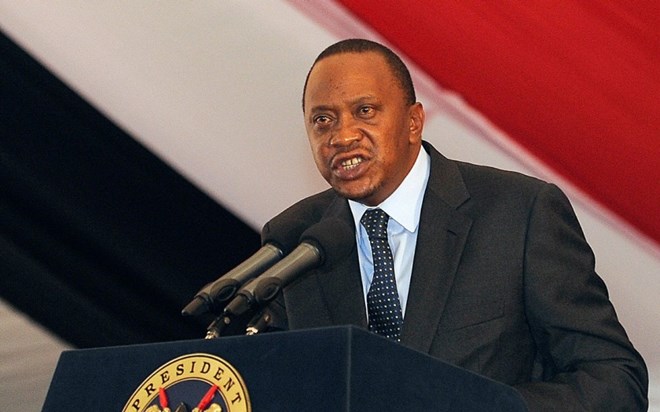
Sunday October 16, 2016

File: Kenyan President Uhuru Kenyatta
Senior American government officials rebuffed a request from former President Mwai Kibaki’s Cabinet ministers for help on Kenya’s ill-advised “Jubaland initiative”, latest cache of leaked diplomatic cables reveal.Wikileaks says US Assistant Secretary of Defense Alexander Vershbow separately met four Kenyan officials — former Prime Minister Raila Odinga, former ministers Yussuf Haji (Defence), late George Saitoti (Internal Security) and former Chief of Defence Jeremiah Kianga — on January 26, 2010.
All the Kenyan Government officials pleaded for American support in GoK’s efforts to stabilise Somalia. The Jubaland initiative, which was then rolling, was the precursor to Kenya’s military intervention in Somalia the following year.
It entailed creation of a peaceful buffer zone between Kenya and Somalia hinterland in the area historically known as Jubaland. Analysts have since described Kenya’s initiative, which involved training of Somalia soldiers, as a “gift to Al Shabaab recruiters in Kenya”.
“Kenyan officials also emphasised their strategic focus on denying Al Shabaab control of the Kismayo port, a key logistics hub. ASD Vershbow agreed that training additional TFG (Transitional Federal Government of Somalia) forces was important, but told ministers Haji and Saitoti that while ‘you have our understanding, you do not yet have our support’,” the cables say.
The leaks reveal that at that time Raila was acutely aware that Dadaab refugee camp was a potential breeding ground for foreign terrorist organisations. They said he expressed concerns that the international community “has not acted with resolve” as needed in Somalia. Raila also told the American official that the border between Kenya and Somalia would, for humanitarian purposes, unofficially remain open despite the flow of thousands of refugees and arms.
“Kenyan officials expressed concern over spillover of violence from Somalia and the flow of Somali refugees into Kenya,” the cables say.
In the meeting, Saitoti pressed for more assistance in monetary and technical terms to the fledgling TFG. Haji explained that the border between Kenya and Somalia was of significant concern and added that Kenya was deploying additional resources to its eastern border.
“Minister Saitoti also expressed particular concern over Kenya’s border security. He commented that Kenya was receiving 6,000 refugees monthly and outlined major security, economic and environmental implications of the flow,” the cables say.
“Saitoti said that ethnic Somalis are competing for scarce employment opportunities throughout Kenya and having a negative impact on the tourism industry. Saitoti pointed out the environmental degradation occurring near refugee camps as Kenya’s forests were being torn down for use as firewood.”
However, it was Haji and Kianga who succinctly made the case for the Jubaland initiative and asked for US’s understanding and support:
“Kenya has begun to train up to 2,000 Somalis to be deployed against Al Shabaab in Lower and Upper Juba,” the cables citing the discussions say. They also say the Kenyan officials claimed it was the TFG, which had requested the initiative, that political accommodation between Jubaland and TFG authorities was being worked out, and that the TFG was the one recruiting all fighters.
The cables say Saitoti and Haji did not take America’s refusal to help lying down. They retorted that the international community was assisting both Uganda and Djibouti to train TFG forces and wondered why they were not willing to assist Kenya.
Haji asserted that “Kenya deserves to be assisted as Uganda and Djibouti were assisted,” cables say.
They say Saitoti rapped the US for failing to offer an alternative strategy to Kenya’s initiative tostabilising Somalia.